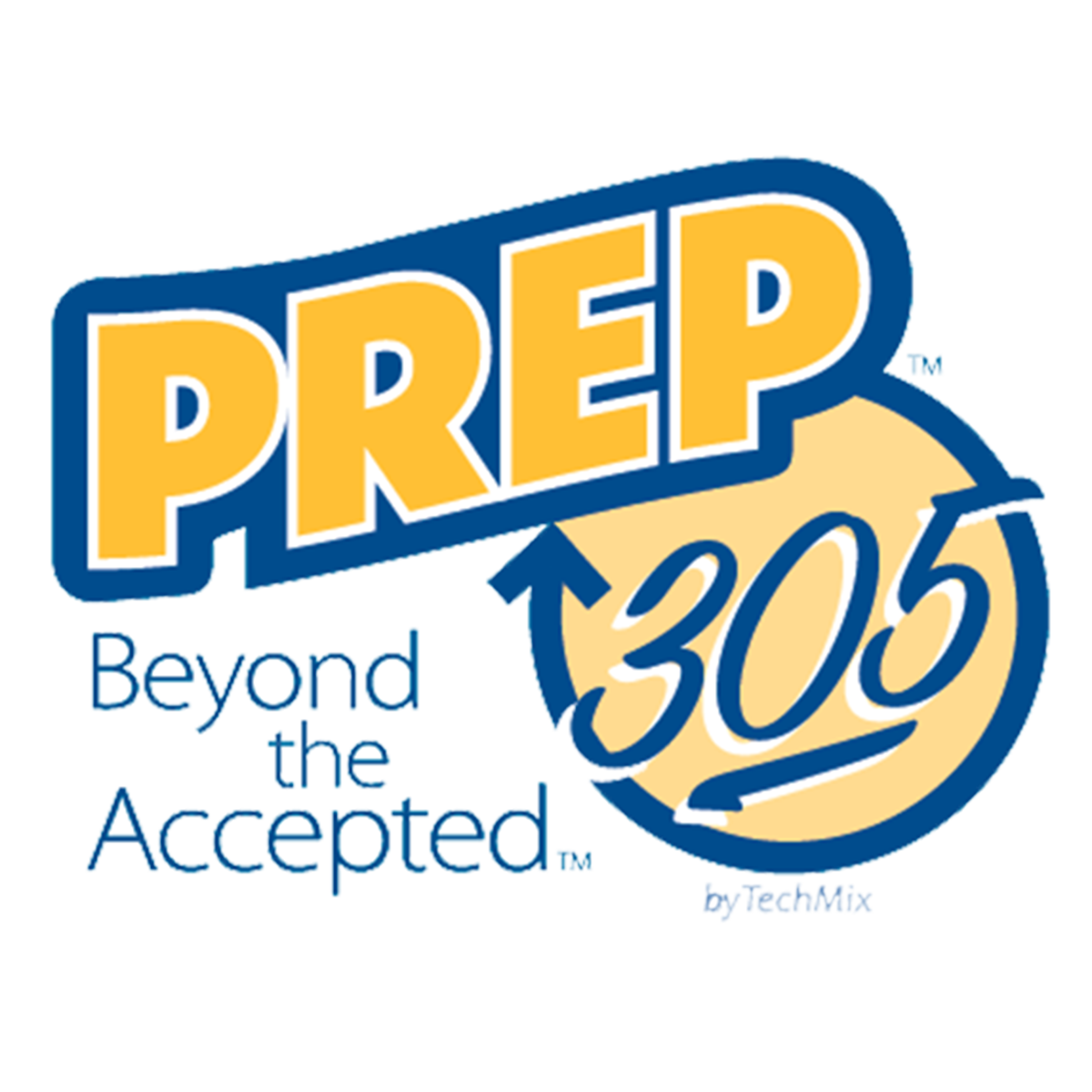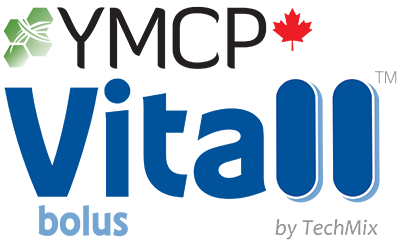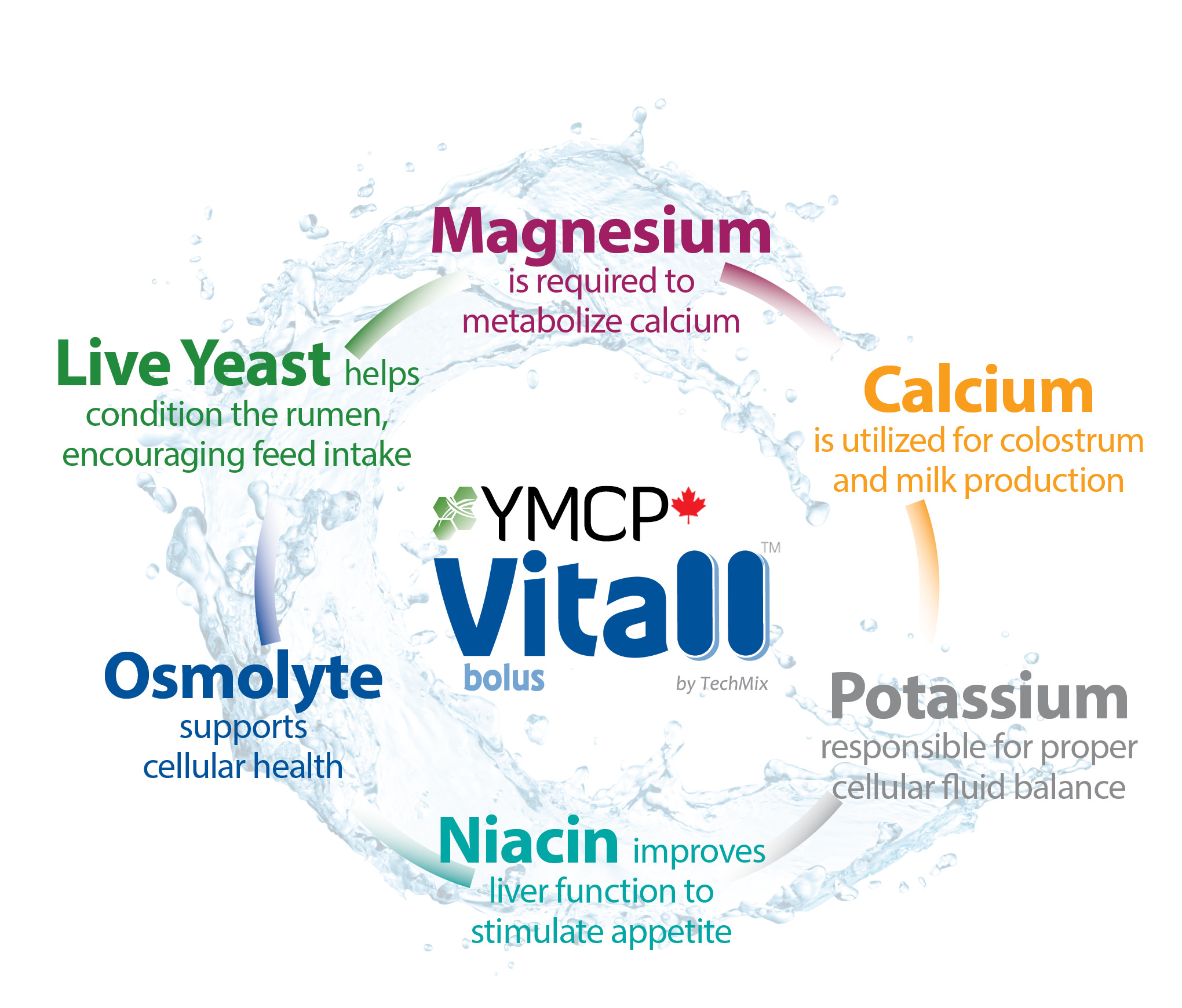Reproduction:
Optimized health and body condition to support reproductive potential.
Optimized reproductive outcomes begin with cows on feed since consistent dry matter intake leads to earlier ovulation. A quicker recovery of feed intake leads to quicker involution of the uterus and less occurrence/severity of intrauterine disease. Therefore, recovering dry matter intake quickly after calving is an important step that can minimize weight loss and support good body condition. A cow in a good condition will cycle regularly and the ovulation will be healthier and more fertile. Every time the cow has a cycle, she has a subsequent increase of progesterone levels that contribute to better fertility in her cycles. In contrast, cows starting their first natural ovulation beyond 42 days after calving are at increased risk of culling due to a possible reproductive failure.
Early lactation: critical events
- Significant social changes (especially for first lactating heifers)
- Rapid feed changes (quality and digestibility differ)
- Metabolic and immune stress
- Feed utilization requirements highest during 0-110 days in milk
A healthier transition/early fresh period, is accepted as a key to higher dry matter intake (DMI) at onset of lactation and research shows cows receiving YMCP® products had higher DMI post-calving. YMCP products provide critical probiotics and nutrients when needed and prepares the cow for future reproductive performance.
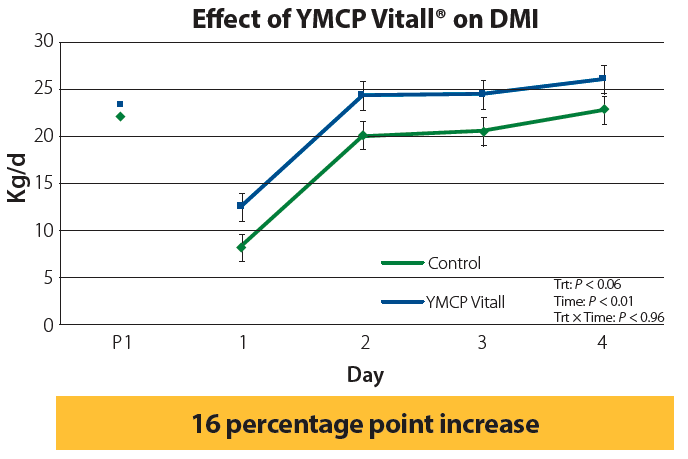
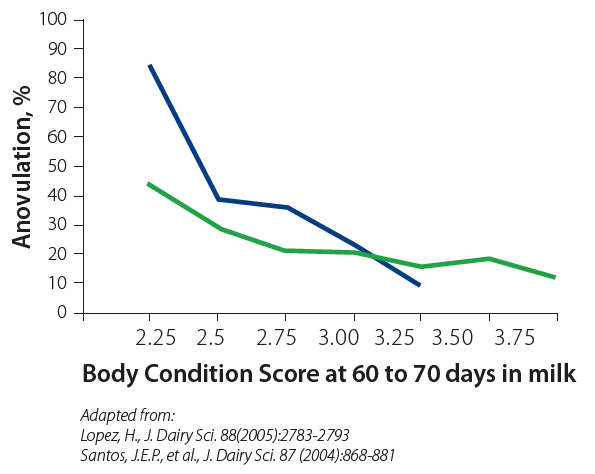
Metabolic challenges and reproduction
Metritis, especially puerperal metritis, correlates with reduced milk production and poor reproductive performance. Cows experiencing metabolic challenges are shown to require more days to get pregnant but also have reduce production and are much more likely to be removed from the herd in the first 60 days of lactation.
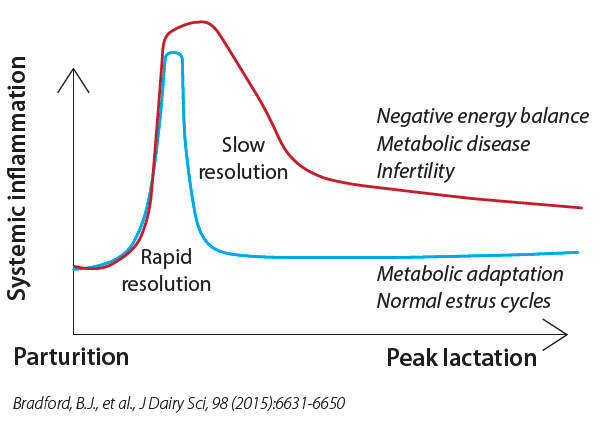
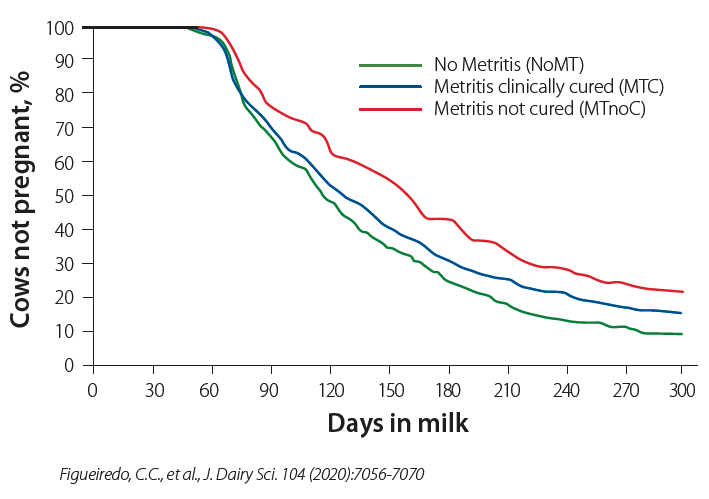
Fresh cow diseases are known to have negative consequences on reproduction. This trial showed the following:
- Even cows that were cured of metritis by treatment (MTC) required more days to get pregnant (see chart at left)
- Pregnancy per artificial insemination following first service was lower for cows with metritis compared with their counterparts with no metritis
- Pregnancy loss tended to be greater for cows with unresolved metritis (MTnoC)
- Probability of pregnancy by 300 days in milk (DIM) was lowest for those with MTnoC
- Death by 60 DIM and removal from herd by 300 DIM were greatest for cows that experienced metritis.
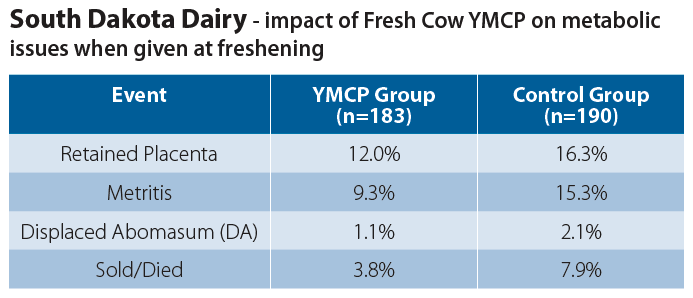
Supplementing with YMCP products
YMCP products have been shown to decrease treatment costs and increase revenue by helping fresh cows avoid metabolic issues, reduce replacement rates, and increase lactation.
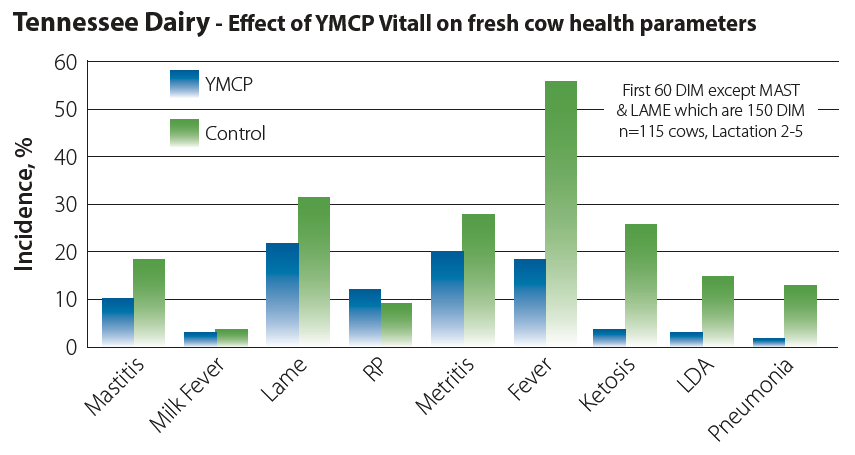
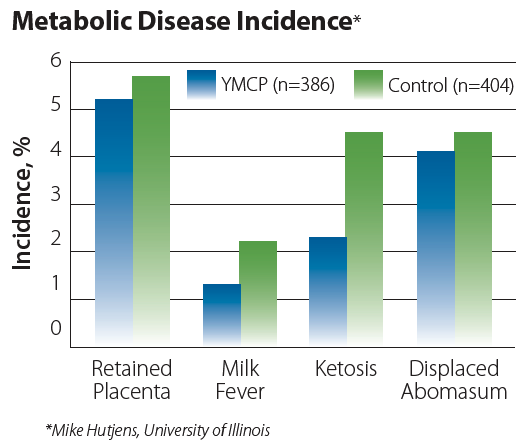
References
Lopez, H., J. Dairy Sci. 88(2005):2783-2793.
Santos, J.E.P., et al., J. Dairy Sci. 87 (2004):868-881
Bradford, B.J., et al., J Dairy Sci, 98 (2015):6631-6650
Figueiredo, C.C., et al., J. Dairy Sci. 104 (2020):7056-7070
Not all forms of the YMCP family of products are available in Canada.

